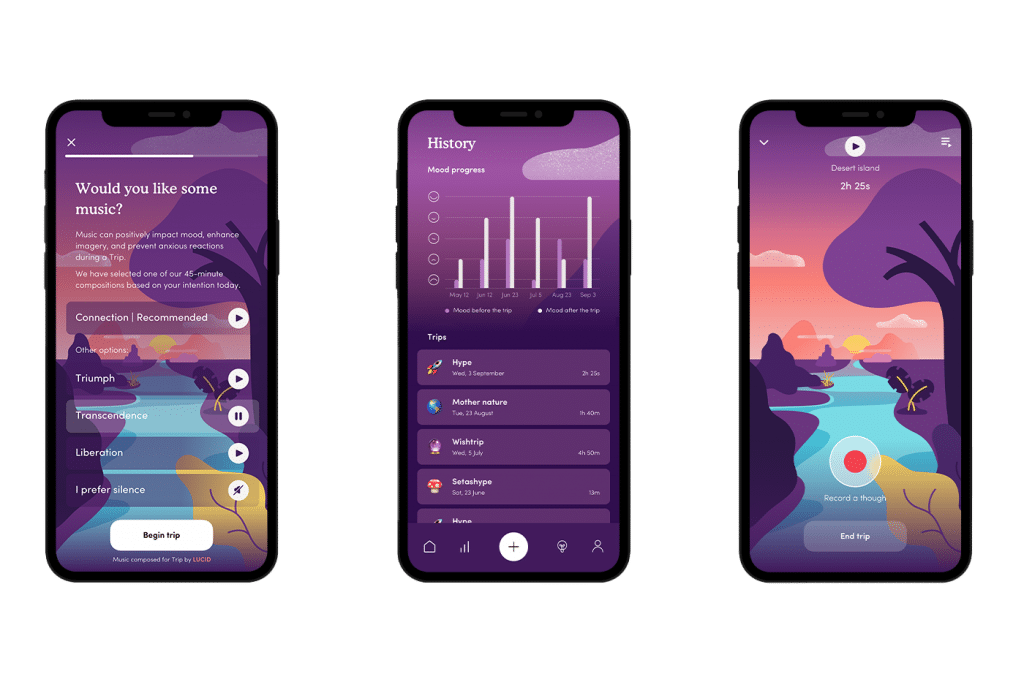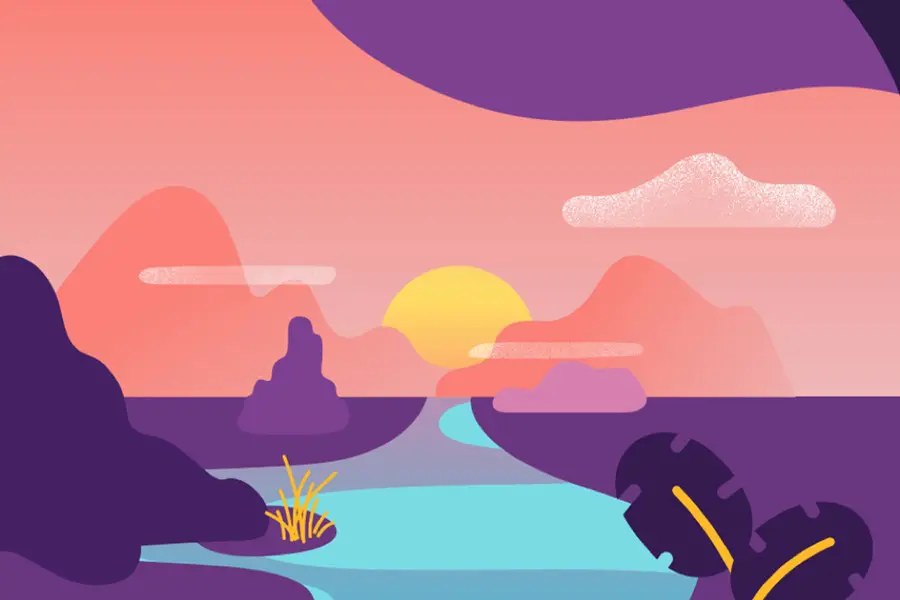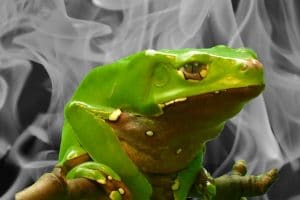This is a sponsored story, in partnership with Field Trip Health.
Could a phone app function as your trip sitter? Well, sort of. Psychedelic-assisted therapy is around the corner with MDMA and psilocybin on the fast-track to becoming prescription medications. Meanwhile ketamine is already being administered in clinics around the country, and plant medicines like peyote or ayahuasca are being served in ceremonial contexts.
But not everyone has access to a professionally guided psychedelic experience. And yet, especially for beginner psychonauts, a little navigation can’t hurt. Enter Trip, a phone app, developed by psychedelic therapy startup Field Trip Health, to help users embark upon and sail through an intentional, healing experience. Whether it’s used for a mushroom journey or a meditation practice, Trip offers guidance for setting an intention, choosing music, and reviewing how the experience went during the integration phase. The idea is to help users get the most out of their trip.

With plans to open six ketamine clinics by the end of the year throughout the US and Canada, in addition to a psilocybin research facility in Jamaica, Ronan Levy, founder of Field Trip Heath, says it’s likely that more people will want to experiment with psychedelics on their own—especially as we see a continued uptick in decriminalization policies. “As we thought about the efforts that we’re putting into developing our psychedelic-assisted psychotherapy protocols for our clinic, we thought it was a great opportunity to take those protocols and make them available to a broader audience, so anyone on a self-exploration journey can be doing it the right way,” he says. “In this world where mindfulness seems to be becoming more present and prevalent, it’s not the end of the journey in terms of self-awareness and consciousness expansion, but just the starting point.”
Based in mindfulness practices, Levy describes the Trip app as a tool to help people access a deeper level of processing and integration work—with or without psychedelics as an avenue to get there. “We think it’s going to do a lot to advance the broader acceptance of psychedelic therapy [and] just general mental well-being and outcomes,” says Levy. “To help people go further with their own consciousness expansion practices—that’s what gave birth to Trip.”
The app walks users through every stage of a trip. “What we’ve learned from our patients is expanding the mind is just the beginning. It is the set and setting before and during, and the reflection done after trips that supports lasting personal growth. We designed Trip as a tool to support that,” says Kori Harrison, Field Trip’s head of product. Upon launching the platform, they’ll be prompted to answer a few guided questions before starting their journey. That includes prompts for centering yourself, setting an intention, and deciding what the name for the trip might be, such as “psilocybin, June 10” or “breathwork” (this can also help people identify past experiences with the app’s handy record of each trip). Depending on the user’s intention—to grow, heal, process, transform, discover, or fill in the blank—Trip partnered with Lucid, an AI-driven music-for-mental-wellness platform, to provide five different 45-minute, customized playlists for different moods.

Before they begin to trip, users will also be asked how they are feeling, so that they can compare their emotional sensations before and after the experience. Then once they’re off on the journey, the app begins a timer and a voice recording button allows them to capture thoughts throughout the experience. When they’re “back,” they set the timer off and are prompted to reflect. “Trips can be dream-like, it’s easy to forget the key insights if they aren’t reflected on soon after, and keeping a record of trip details helps one calibrate and better prepare for trips overtime,” says Harrison.
How to Grow Shrooms Bundle
Take Both of Our Courses and Save $90!
“Everyone journals in their own way,” says Levy. “The app guides them with questions we encourage them to answer”—which include topics like emotions, insights, and visions, not to mention the key question: What will you do differently tomorrow because of your trip? “This ends up getting saved with the trip,” he says. “It goes into the history section.” The “trip summary screen” also includes information like how long the experience lasted, documented emotions, and other audio recordings or journaling that went along with the trip. “Through our user research, we learned that many people already use their phones as a tool for tripping. The most common reasons were for music, writing notes or journaling, and voice recording. Now, they can have all three in one place,” says Harrison.
Available on the App Store beginning August 17 for early access users (join the waitlist here), Trip will be free of cost. “Our goal is for this to reach the broader market that we’re not able to support in the clinics today,” says Levy. “This is built for a broader audience, for anyone who’s having consciousness expanding practices at home.” The app supports Field Trip Heath’s broader vision, he adds: “It’s a mental wellness company based on psychedelics and psychedelic experiences,” Levy says. “You don’t have to take a psychedelic molecule to have a psychedelic experience.”
A variety of mindfulness practices or psychedelic compounds can decrease activity in the Default Mode Network (the location of the ego) and increase neuroplasticity, he adds. And Trip is an extension of that, a touch point to getting there, and expanding consciousness. “It’s designed to help people get out there, to help support people,” says Levy. “Trip acts as a harm reduction tool for people who may be experimenting on their own without support.”

DoubleBlind is a trusted resource for news, evidence-based education, and reporting on psychedelics. We work with leading medical professionals, scientific researchers, journalists, mycologists, indigenous stewards, and cultural pioneers. Read about our editorial policy and fact-checking process here.

DoubleBlind Magazine does not encourage or condone any illegal activities, including but not limited to the use of illegal substances. We do not provide mental health, clinical, or medical services. We are not a substitute for medical, psychological, or psychiatric diagnosis, treatment, or advice. If you are in a crisis or if you or any other person may be in danger or experiencing a mental health emergency, immediately call 911 or your local emergency resources. If you are considering suicide, please call 988 to connect with the National Suicide Prevention Lifeline.



